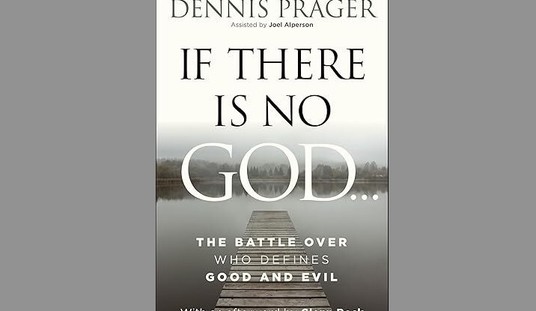Devyani Khobragade, indicted Indian Diplomat, who is at the center of a storm between India and the United States following her arrest for allegedly employing a servant under slave labor conditions.
Dominique Strauss Kahn, IMF Director and favorite to become president of France, arrested for allegedly behaving indecently with a hotel maid.
Zoe Baird who was nominated by President Bill Clinton as the first woman to be Attorney General of the United States but withdrew her nomination because of a controversy surrounding her hiring of two illegal aliens from Peru as servants.
Kimba Wood who following the disqualification of Baird was Clinton’s second choice, but within a day it became known that she too had employed an illegal alien to look after her child.
Balked at his first two nominations, Clinton finally selected state prosecutor Janet Reno, who was confirmed and served through all eight years of the administration. She didn’t have any trouble with maids.
Who said God didn’t have a sense of humor?
There’s a moral in here somewhere, if someone can figure out what it is. Perhaps there are two “third rails” of politics throughout the world. The first is the deep reservoir of resentment against the assertion of “class privilege”. What unites those who were ensnared by the ‘maid scandals’ is they were seen to be putting themselves above others.
That image was exploited by prosecutors or examiners who wanted to make a name for themselves by targeting otherwise untouchable game by portraying the accused as heartless villains who will exploit, rape or otherwise degrade the poor and defenseless just to save a few bucks. If you accused a politician of keeping a million dollars in stolen money in a refrigerator, nobody would mind. But accuse them of working a maid for 100 hours a week at $1.42 an hour and look out.
The second electric rail is challenging the authority of institutions. One of the attractions of being a diplomat is so that you’re not treated like others. You get to go in where others are kept out; you are entitled to deference whether the rest have to jump through hoops. Treating a special person like a common peon often triggers a self-protective reflex among the elites, whether Indian, French or American because it threatens them all. F. Scott Fitgerald was right: the rich are different from you and me.
They possess and enjoy early, and it does something to them, makes them soft where we are hard, and cynical where we are trustful, in a way that, unless you were born rich, it is very difficult to understand. They think, deep in their hearts, that they are better than we are because we had to discover the compensations and refuges of life for ourselves. Even when they enter deep into our world or sink below us, they still think that they are better than we are. They are different.
And the accused elites know better than anyone that they were playing by the real rules, that they were simply caught transgressing by hypocritical prosecutors who are regard themselves as the most special of all. Perhaps the wisest course is to hate prosecutors and politicians with equal vehemence.
Yet these lines cross and re-cross. Hence a survey of Twitter seems to show that even the Indians are divided by the expulsion of Khobragade. Some of the poor see it is as comeuppance for those who have long lorded it over them while the Indian great perceive it as a slight on their — underscore ‘their’ — country.
But it’s not particular to India. Recently in the Philippines the mayor of a major city attempted to bull his way through a gated community checkpoint. He wanted it opened specially for himself. The guards refused so he spent next hour getting his bodguards to intimidate the rent-a-cops until his police force could arrive to arrest them for the crime of defying him. Of course he could have driven around to another exit in 5 minutes. But that was unthinkable because he had to punish the guards for refusing to respond to his all-purpose justification for anything.
“Don’t you know who I am?” The six most explosive words in the world.
Unfortunately the whole thing was recorded on a security video camera and posted on YouTube leading to a political crisis for the mayor.
There is nothing so fraught with peril as an interaction between the very rich and the very poor. In certain circumstances, both can be seized with a determination to assert their wounded pride to an unreasonable extent. The fact that a man is poor, no less than the fact that he is rich, can lead to an imagined inflation of dignity. In those situations two men from opposite sides of the tracks will kill each other over a sharp look, or over the possession of bottle of beer, even though neither is worth anything to either.
For the poor are also different from you and me. They know early what it is to be kicked in the teeth; what it is to scrape and grovel before idiots with a fixed smile. And to constantly listen to that terrible and meaningless phrase. “Don’t you know who I am?”
Even when the rich are right in argument with the poor, they can still think they are being shafted. It’s a perception that dies hard. One of America’s former great aspirations was to put an end to class warfare. It was a noble dream, to see each man as an individual; a prince or blackguard for himself alone; to see the rights and wrongs of things on their merits. Too bad that its current leaders have once again come to the conclusion that class warfare is a good idea.
It’s not who’s right. It’s whose side are you on?
Did you know that you can purchase some of these books and pamphlets by Richard Fernandez and share them with you friends? They will receive a link in their email and it will automatically give them access to a Kindle reader on their smartphone, computer or even as a web-readable document.
The War of the Words for $3.99, Understanding the crisis of the early 21st century in terms of information corruption in the financial, security and political spheres
Rebranding Christianity for $3.99, or why the truth shall make you free
The Three Conjectures at Amazon Kindle for $1.99, reflections on terrorism and the nuclear age
Storming the Castle at Amazon Kindle for $3.99, why government should get small
No Way In at Amazon Kindle $8.95, print $9.99. Fiction. A flight into peril, flashbacks to underground action.
Storm Over the South China Sea $0.99, how China is restarting history in the Pacific
Tip Jar or Subscribe or Unsubscribe










Join the conversation as a VIP Member